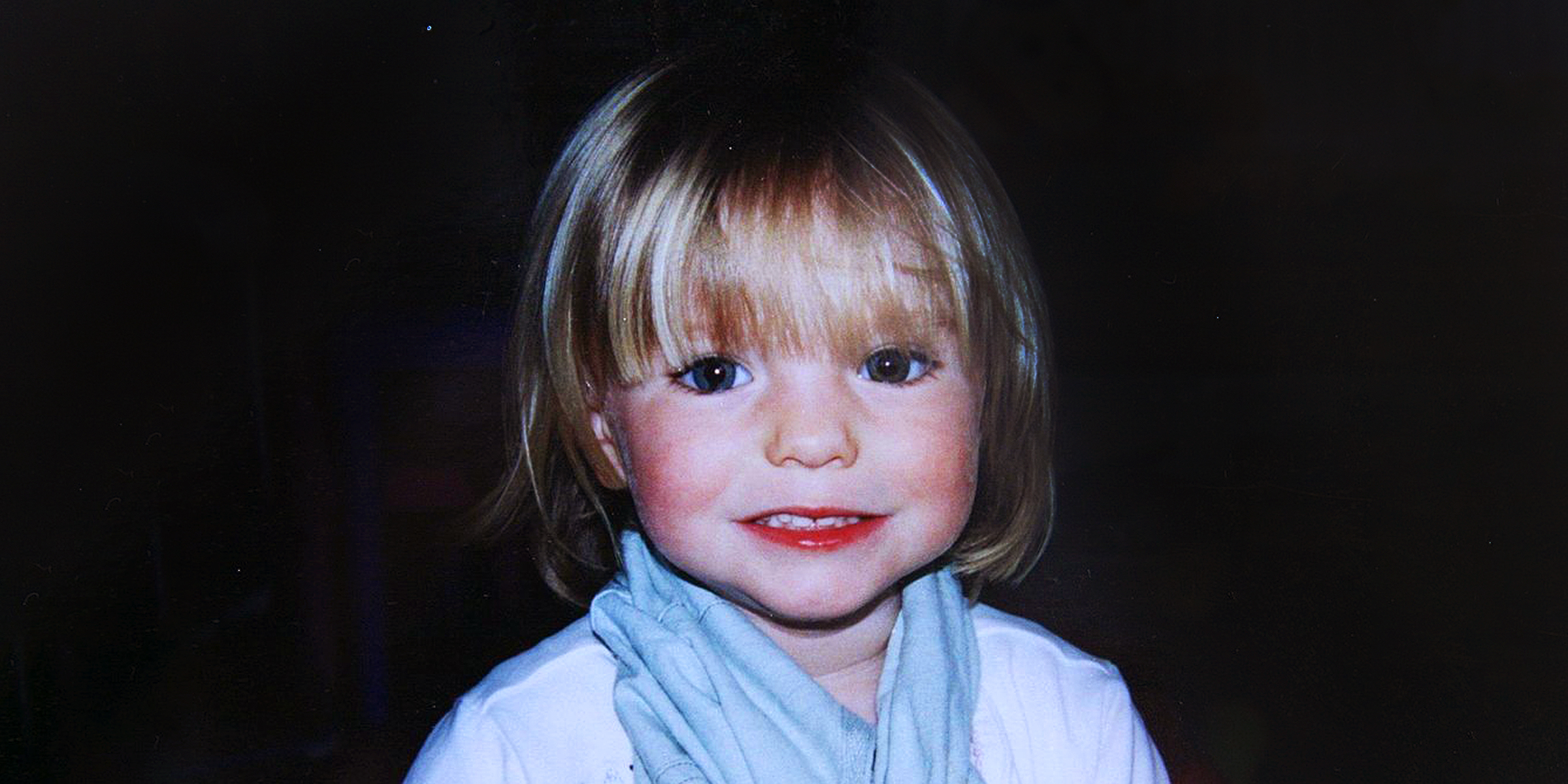
Madeleine McCann Suspect's Hard Drive Points to Missing Girl's Fate — The Evidence Is Revealed
Authorities say they have found proof that points to the main suspect in the disappearance case. Still, the evidence is not strong enough to charge the convicted child offender.
Madeleine McCann vanished nearly twenty years ago, and her case is still open. Since then, investigators have collected clues linking Christian Bruckner to her disappearance.
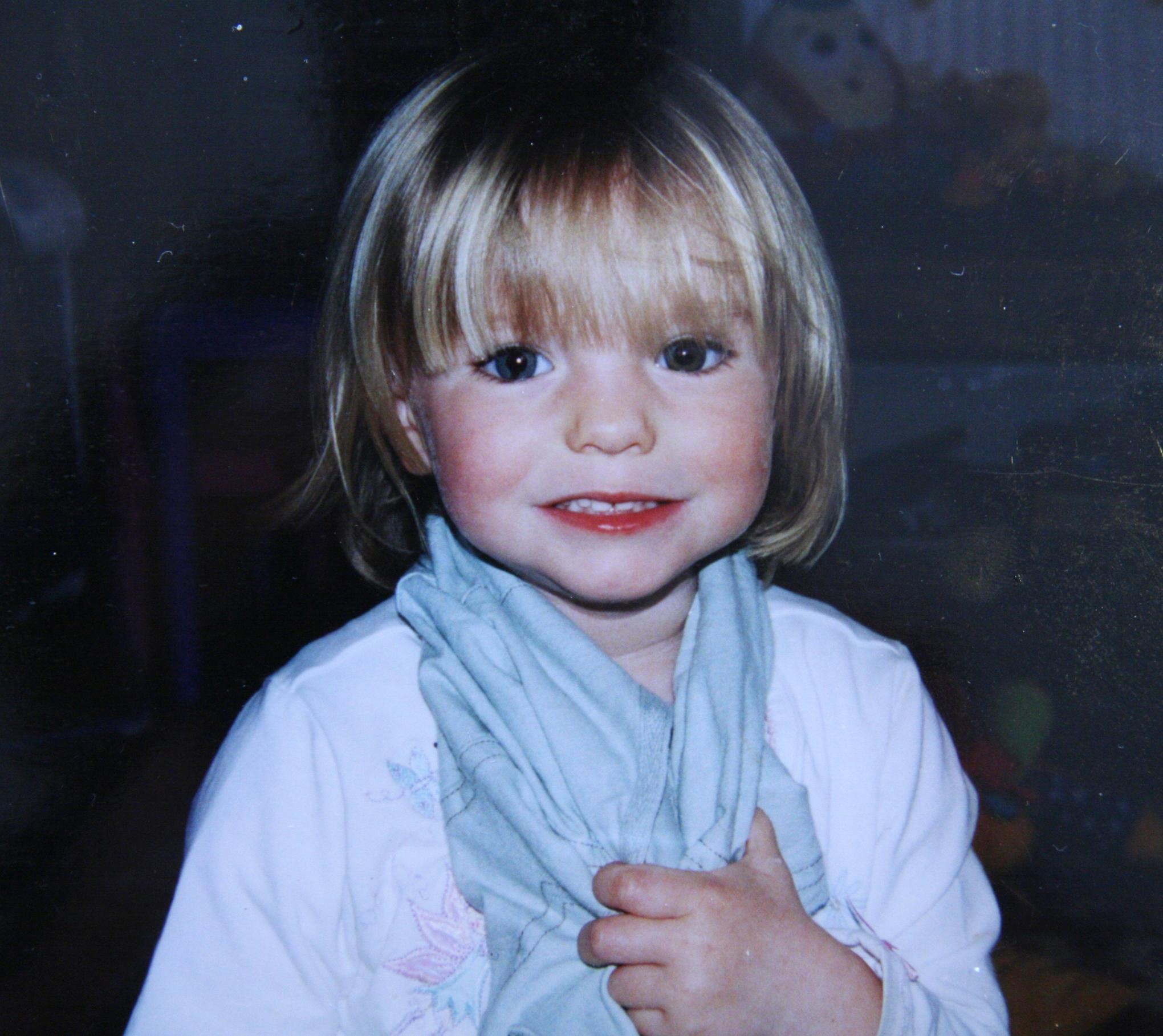
Madeleine McCann pictured in a handout photo released on September 16, 2007 | Source: Getty Images
The public has followed Madeleine's case for years. Now, new details from the investigation have brought even more attention to Brueckner.
In May 2025, German police shared that they came across children's clothes and toys, along with masks, chemicals, and weapons, while searching his old hideout.
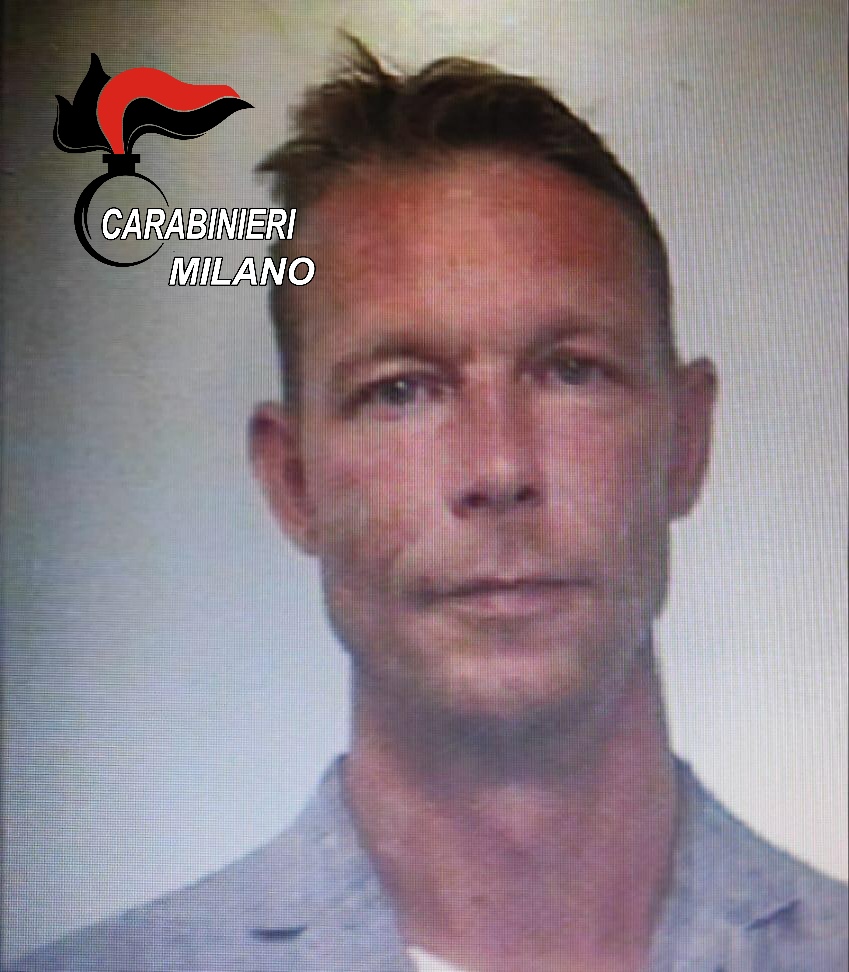
An undated handout image shows a police mug shot of Christian Brueckner | Source: Getty Images
A hard drive full of images was also recovered, though it has not been shown to the public. Investigators believe what's on it explains why they think Madeleine is no longer alive.
Most of these items were discovered by accident at an empty factory Brueckner bought in 2008, one year after Madeleine disappeared.
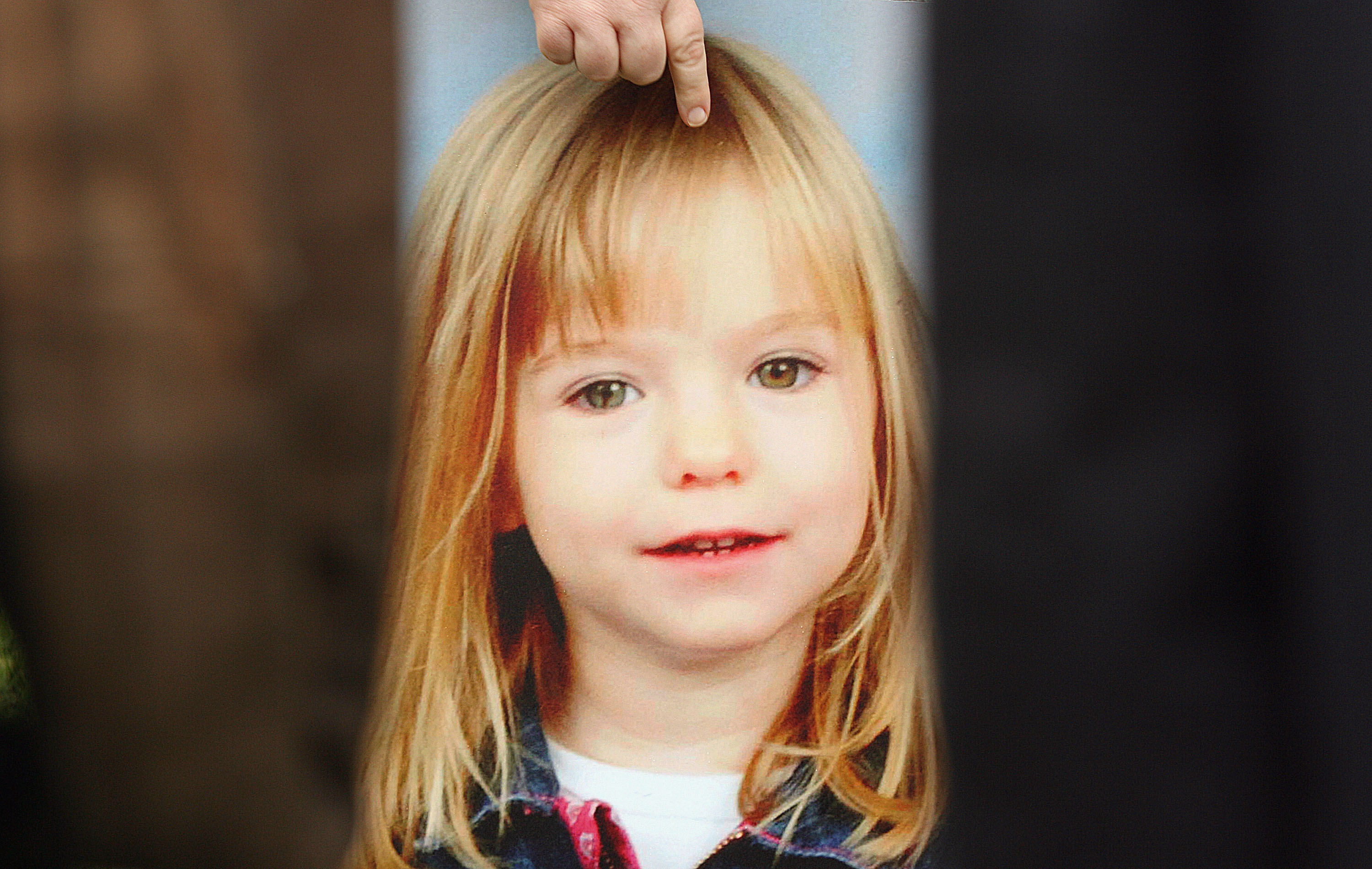
A picture of Madeleine McCann held by her aunt Philomena McCann during television interviews on May 16, 2007, in London, England. | Source: Getty Images
These images, captured in Portugal, have played a major role in shaping the case. Investigators believe they strongly support the idea that Madeleine lost her life soon after she went missing.
Following the release of the photos, which investigators view as crucial, more evidence continued to surface — adding further weight to the case against Brueckner.
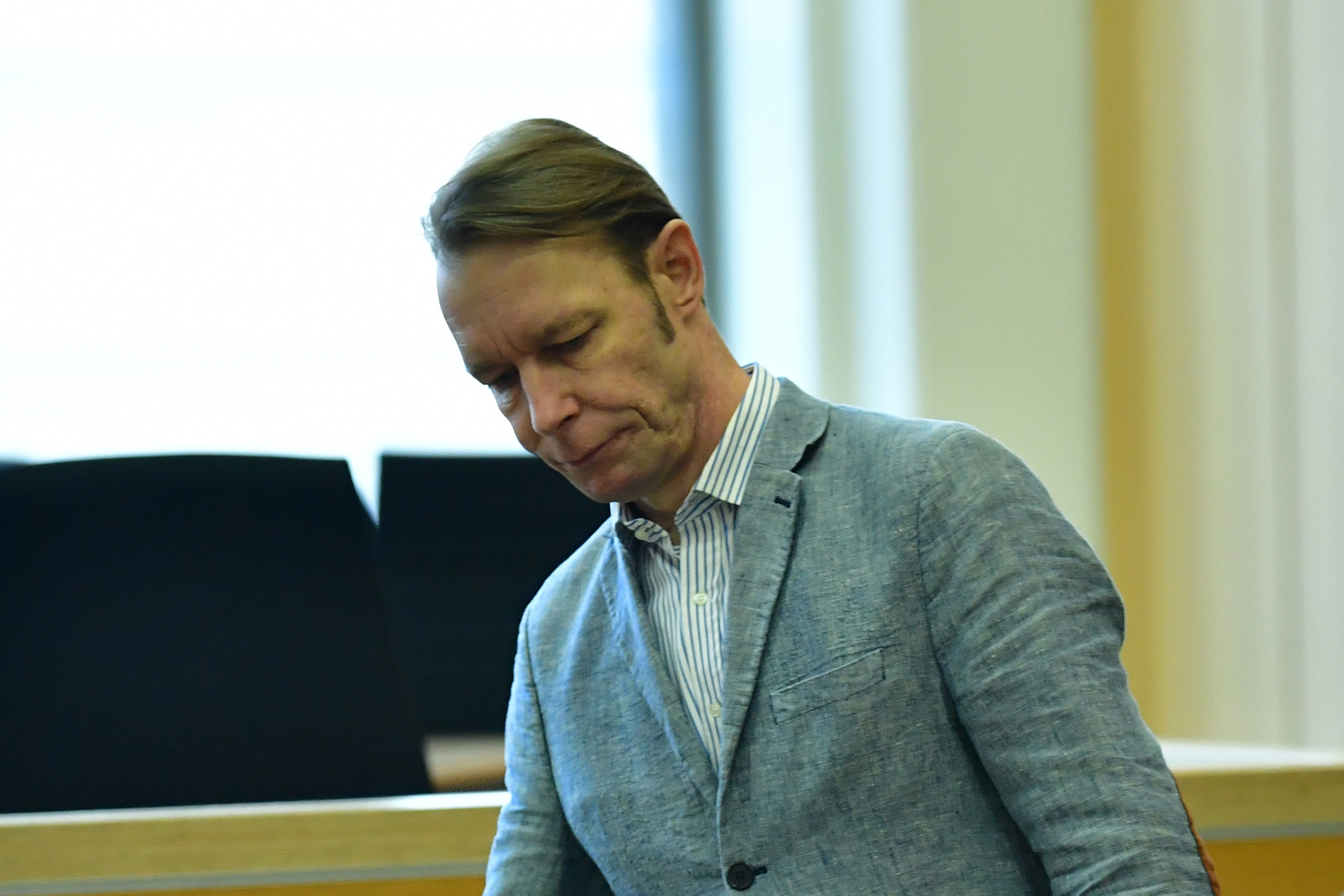
Christian Brueckner arrives at the Landgericht Braunschweig state courthouse for one on October 7, 2024, in Braunschweig, Germany. | Source: Getty Images
In 2024, German authorities revealed the existence of an email account believed to connect him directly to Madeleine's disappearance. Prosecutor Titus Stampa told a court that the Hotmail account linked to Brueckner contained messages that tied him to the case.
At the time, Brueckner was facing charges in Germany for separate sex crimes. Though he denied any part in Madeleine's vanishing, Stampa mentioned that the email contents were tied to her death. He did not confirm whether the emails held images or video clips.
This email account was not the only digital trail under review. Investigators also uncovered a second account used by Brueckner. Authorities believe he shared child abuse images with other offenders through this platform.
What raised further concern was that he had supposedly erased all emails from that account in early 2007 — just around the time Madeleine disappeared.
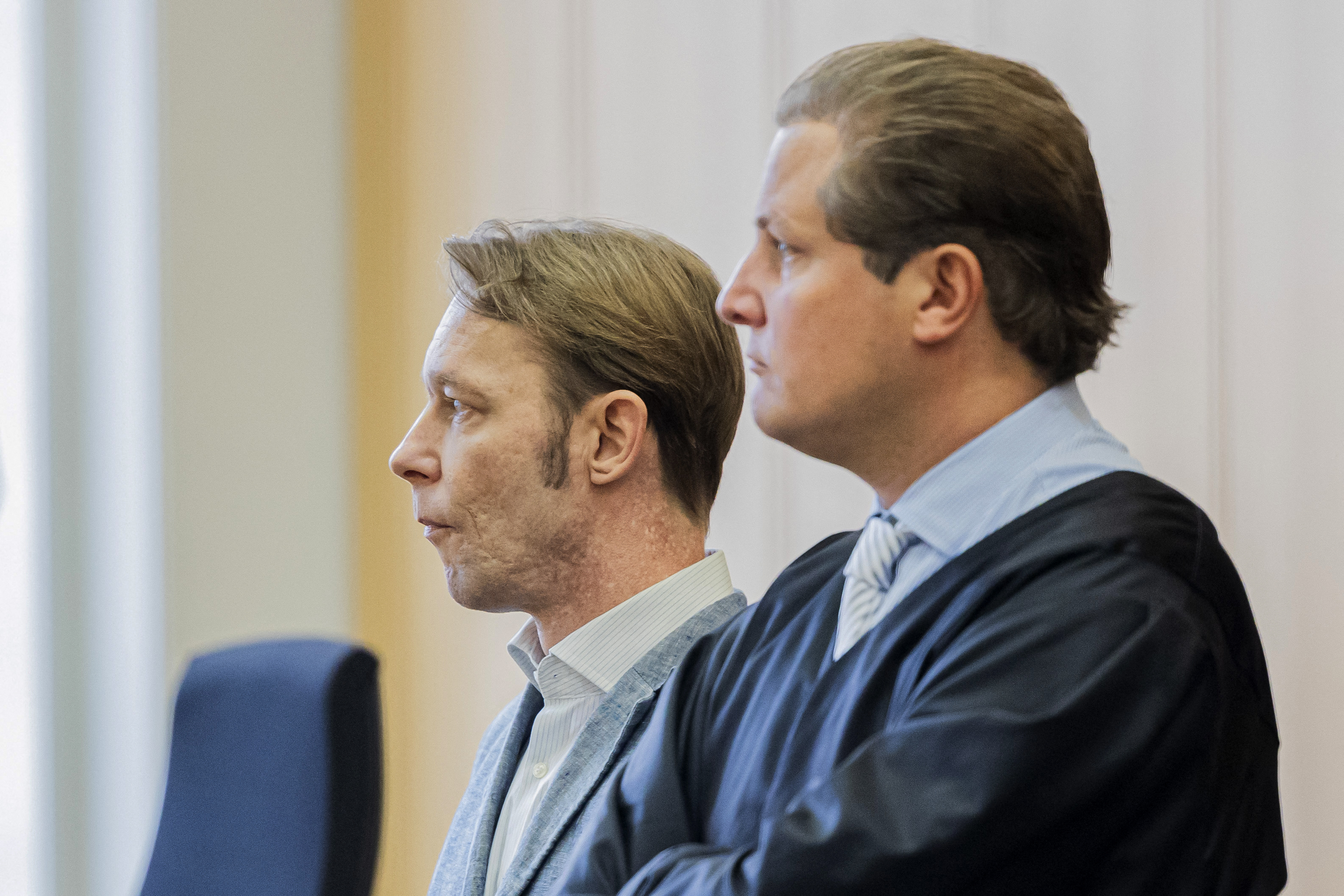
Christian Bruckner and Friedrich Fuelscher pictured at the courtroom on October 8, 2024, in Braunschweig, Germany. | Source: Getty Images
These discoveries added even more weight to the growing fears about what Brueckner may have intended — or already carried out. According to earlier reports, he once bragged about wanting to film the kidnapping of a child.
In an online chat with another offender, he gave chilling details about his desire to "catch something little and use it for days." When asked if he feared getting caught, he replied:
"Meh, if the evidence is destroyed . . ."
In the same online exchange, Brueckner, added, "Then I'll record maaaany videos/clips. I'll document in detail how she's being tortured." German investigators uncovered this conversation while looking into the 2015 disappearance of five-year-old Inga Gehricke — just one day before the eighth anniversary of Madeleine's case.
Hans Christian Wolters, the German prosecutor leading the investigation, shared his view that Madeleine was likely killed not long after she was taken:
"My private opinion is that he relatively quickly killed the girl, possibly abused her and then killed her."
He also mentioned that Brueckner was suspected of committing other sexual crimes in both Portugal and Germany. His unsettling words were only a glimpse into what authorities feared might be a larger, hidden truth.
Wolters would not confirm whether Brueckner had recorded any abuse involving Madeleine, as he had done with other victims. Instead, he explained that the goal is to gather strong evidence before confronting him, to prevent the suspect from dismissing parts of the case with possible excuses.
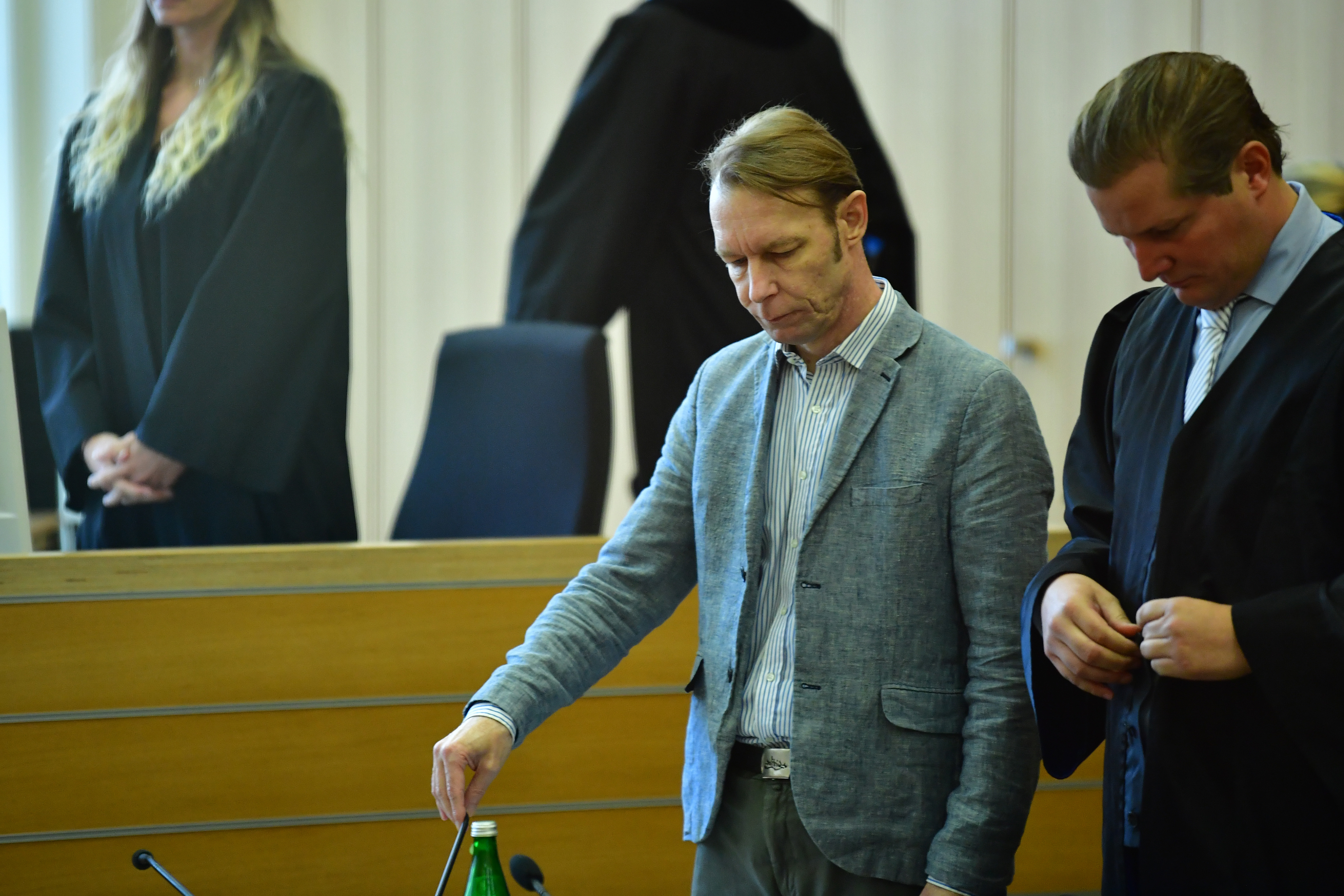
Christian Bruckner arrives at the courtroom on October 8, 2024, in Braunschweig, Germany. | Source: Getty Images
The cautious approach to questioning Brueckner reflects the legal limits investigators still face. In another 2020 interview, Wolters explained:
"At the moment, there is insufficient evidence to convict."
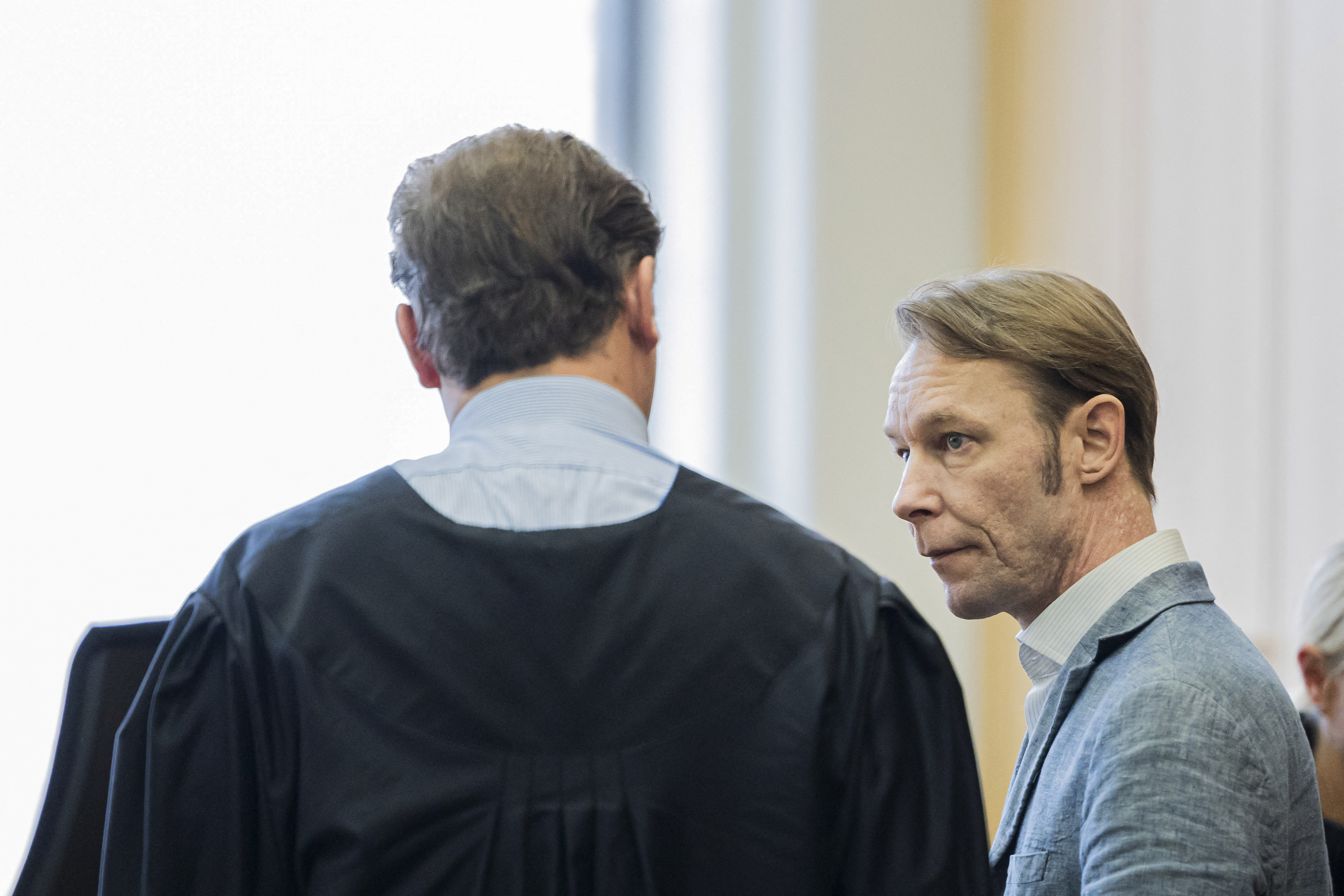
Christian Bruckner and Friedrich Fuelscher at the courtroom on October 8, 2024, in Braunschweig, Germany. | Source: Getty Images
According to Wolters, the case has sparked hundreds of new leads in both Germany and the UK. Still, he admitted, "We have a well-founded suspicion, but this suspicion is below the sufficient level we need to actually bring charges to court."
Despite the growing pile of leads, legal action has moved slowly — limited by the need for stronger proof. In 2020, German police publicly named Christian Brueckner as a suspect in Madeleine's case.
Two years later, prosecutors in southern Portugal began the process of formally accusing him in connection to her disappearance. While the Public Ministry in Faro did not mention any names, the move was made at the request of German officials and in cooperation with investigators from the UK.
Reports revealed at the time that the investigation was being led from Portimao, with Portugal's Judiciary Police working closely with prosecutors to examine every possible detail.
While international teams pressed ahead with their efforts, Portugal also took steps to revisit the case. In October 2013, the Portuguese public prosecutor's office confirmed that police had reopened their investigation into Madeleine's disappearance.
Portugal's attorney general said that new pieces of evidence gave reason to reopen the case, which had been closed in 2008. At the time, Madeleine's parents, Gerry and Kate McCann, shared their hope that the renewed investigation might lead to the answers they had long been searching for.
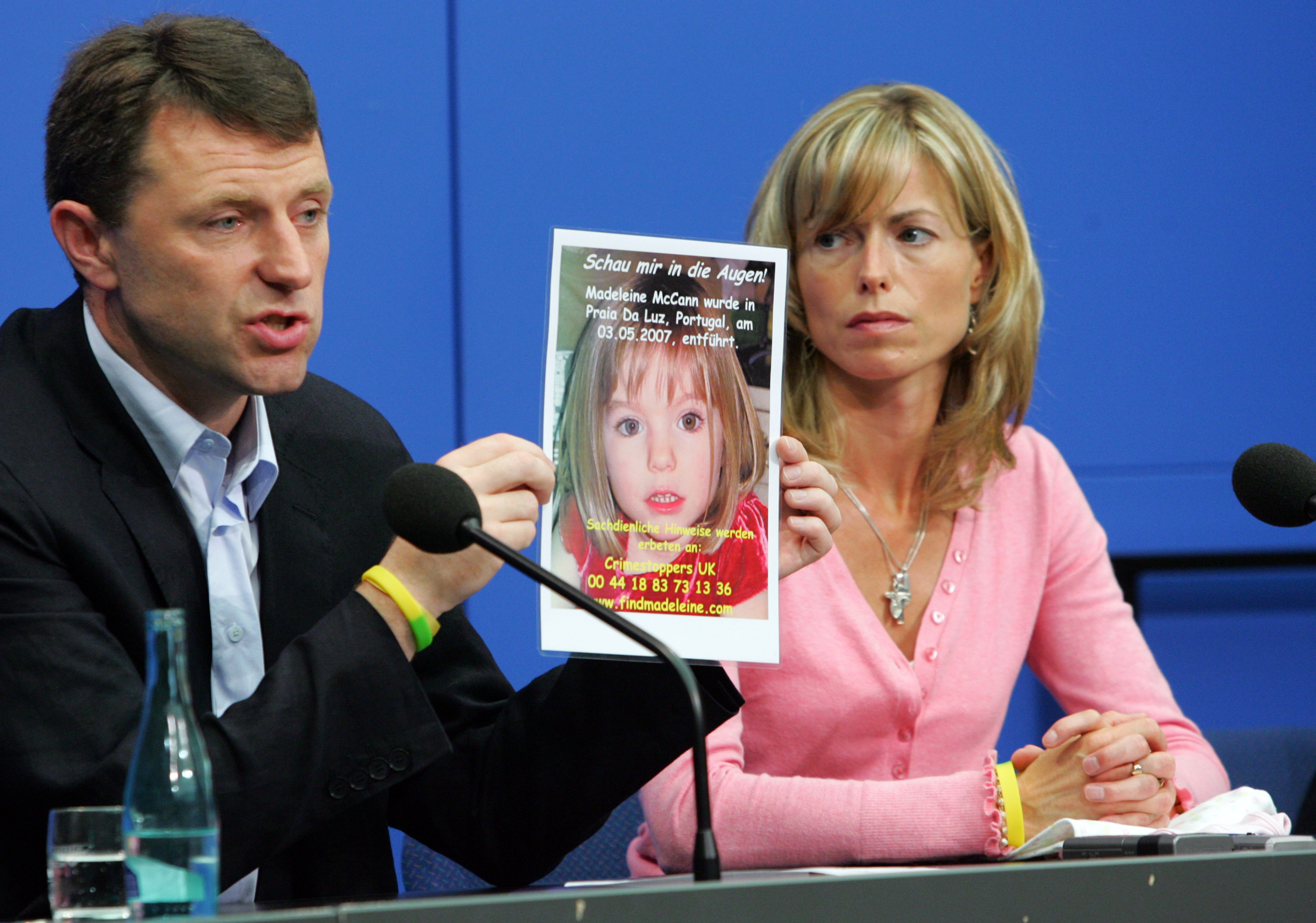
Kate and Gerry McCann during a press conference on June 6, 2007, in Berlin, Germany. | Source: Getty Images
Meanwhile, Scotland Yard had launched a review of the case in May 2011 — known as Operation Grange — and turned it into a full investigation by July 2013. Portuguese police shared that a separate review had been underway since March 2011, revealing fresh leads after going through earlier case files.
As the case regained momentum, investigators widened their search and turned to the public for help. That same month, British detectives released images of a man they considered important to the investigation. Two computer-generated sketches were shared, both believed to show the same individual, who became a top focus for the new inquiry team.
He had been spotted near the Praia da Luz resort around the time Madeleine vanished. Although his image has been shared widely and appeals made over the years, he has never come forward to speak with police in either Portugal or the UK.
The descriptions came from two witnesses soon after the disappearance, but it wasn't until the Metropolitan Police compared all available information — including phone records and private reports — that the full weight of those witness accounts became clear.
As investigators pieced together timelines and sightings, attention also turned to the night Madeleine vanished. She was just three years old when she was taken from her bed at a holiday resort in Portugal while her parents dined at a nearby restaurant in May 2007.
When her mother, Kate, returned to check on the children, only the twins — Sean and Amelie McCann — were still inside. By the following year, Portuguese authorities began looking into whether Madeleine's parents had been careless by leaving the children alone in an unlocked apartment that night.
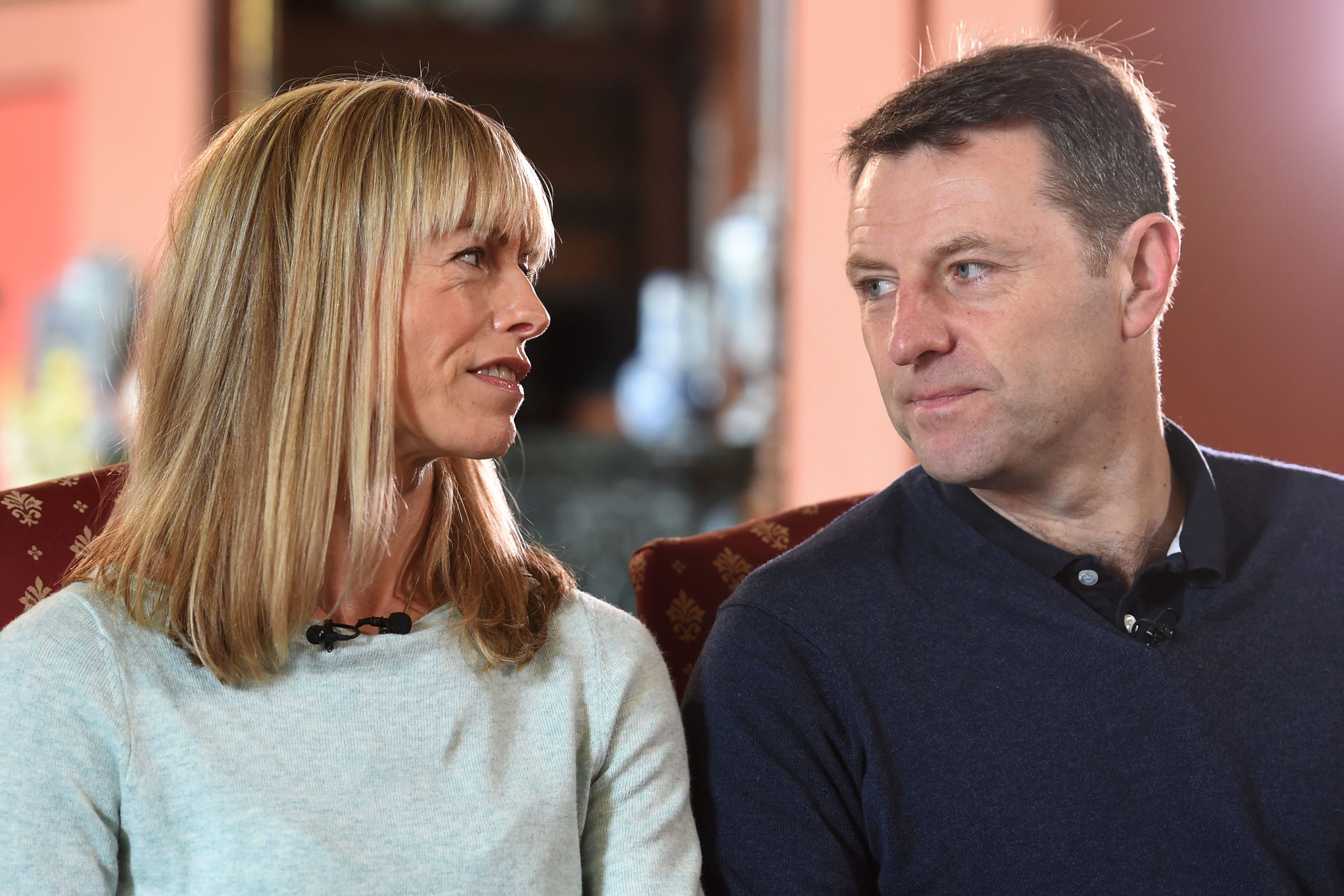
Kate and Gerry McCann during an interview on April 28, 2017, in Loughborough, England. | Source: Getty Images
While police explored multiple leads, court documents later revealed the broader scope of the inquiry. A 2008 ruling from the Supreme Court of Justice in Portimao showed that the case included possible charges of abduction, homicide, child endangerment, and hiding a body.
One charge — abandonment — hinted at police concerns over the McCanns leaving their kids alone while dining nearby. Gerry and Kate, listed as suspects, denied any neglect, saying they were just fifty yards away and checked on the children often. Prosecutors also sought access to calls and messages from phones linked to the couple and their friends.
Though a judge denied that request, the court decision gave the McCanns their first official look at the investigation. Their spokesman, Clarence Mitchell, said the couple stood by their belief that Madeleine was taken and that their actions that night were within the limits of responsible parenting.
The speculation surrounding the McCanns continued as some officers reportedly developed a controversial theory about what might have happened to Madeleine.
According to media reports citing police leaks, investigators believed the couple may have sedated their daughter so they could enjoy an evening out, which may have accidentally led to her death.
The theory suggested a cover-up followed, comparing it to large-scale conspiracies. It claimed the McCanns, both doctors, found Madeleine unresponsive, hid her body for weeks, and later used a rental car to move it.
Alleged evidence cited included blood traces in the apartment, DNA in the car's trunk, and sniffer dog reactions to clothes, a doll, and areas linked to the family.
However, no official confirmation has been given about this supposed physical evidence. Some items were reportedly found long after the apartment had been vacated, raising concerns about contamination.
Kate has stated that, as a doctor, her work could explain the scent of death picked up by dogs. Others questioned the findings altogether, suggesting that any such traces might have been planted or misinterpreted — fueling doubt rather than clarity in an already complex case.
Madeleine McCann has been missing for 18 years, and despite years of international investigation, her case remains unsolved. Brueckner has been named as the prime suspect, though no formal charges have been filed against him in connection to her disappearance. Authorities in Germany, Portugal, and the UK continue to pursue new leads. The search for answers is still ongoing.
ondoho.com does not support or promote any kind of violence, self-harm, or abusive behavior. We raise awareness about these issues to help potential victims seek professional counseling and prevent anyone from getting hurt. ondoho.com speaks out against the above mentioned and ondoho.com advocates for a healthy discussion about the instances of violence, abuse, sexual misconduct, animal cruelty, abuse etc. that benefits the victims. We also encourage everyone to report any crime incident they witness as soon as possible.
